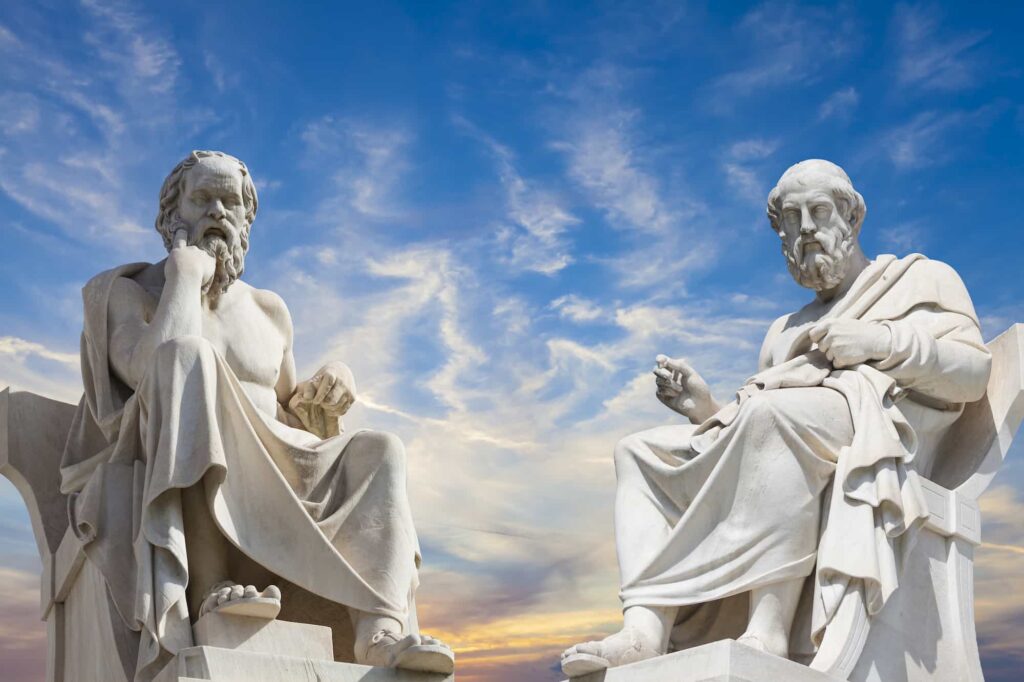In the annals of philosophy, few names command as much reverence and intrigue as Ploten, also known as Plotinus. Born in the early 3rd century CE, likely around 204/5 CE, in the bustling metropolis of Lycopolis, Egypt, Ploten’s life unfolded against the backdrop of the Roman Empire’s zenith.
His journey through the realms of metaphysics, ethics, and theology would ultimately forge the path for Neoplatonism, a philosophical movement that left an indelible mark on Western thought.
Details About Ploten Neoplatonism!
1. Who Was Ploten?
Firstly, Ploten, also known as Plotinus, was a philosopher born in Roman Egypt in the early 3rd century CE. He is considered the founder of Neoplatonism, a philosophical system that sought to reconcile Platonic metaphysics with elements of Eastern mysticism and religious teachings.
2. When Was Ploten Born?
Moreover, Ploten was born around 204/5 CE in Lycopolis, Egypt, during the height of the Roman Empire. His exact birthdate is not known, but historical records place him in the early 3rd century CE.
3. Where Did Ploten Live?
In Addition, Ploten spent most of his life in the Roman Empire, particularly in Alexandria and later in Rome. However, he also traveled extensively, seeking knowledge and philosophical insights from various schools of thought across the Mediterranean region.
4. What Did Ploten Teach?
Ploten’s philosophy revolved around the concept of the One, an ultimate, transcendent reality from which all existence emanates. He posited the existence of three fundamental principles: the One, the Intellect, and the Soul.
According to Ploten, the material world is a reflection of the higher realities, and the goal of human existence is to reunite with the One through philosophical contemplation and spiritual purification.
Read: Garnethillskids.Com – Guide to Children’s Online Shopping!
How Did Ploten’s Ideas Affect Later Thinkers?

1. Inspiring Augustine and Medieval Thinkers:
Ploten ideas sparked a flame in the mind of Augustine, a renowned theologian of the medieval period. Augustine was captivated by Ploten’s blending of Platonic philosophy with mystical elements, which influenced his own theological works profoundly.
2. Echoes in Islamic Philosophy:
Islamic scholars like Al-Farabi and Avicenna were drawn to Ploten Neoplatonic concepts, finding resonance with their own philosophical inquiries.
They incorporated Ploten’s ideas into Islamic philosophy, enriching it with a unique blend of Neoplatonism and Islamic thought.
3. Renaissance Revival:
During the Renaissance, Ploten works experienced a resurgence of interest among European intellectuals. His ideas permeated the works of Renaissance thinkers, shaping their understanding of metaphysics, cosmology, and the nature of reality.
4. Enlightenment Enlightenment:
Even in the Age of Enlightenment, Ploten’s influence endured. Enlightenment philosophers such as Leibniz and Kant engaged with his ideas, albeit critically, as they grappled with questions of reason, metaphysics, and the nature of knowledge.
5. Modern Interpretations:
In the modern era, Ploten’s ideas continue to inspire philosophical discourse. Contemporary scholars and thinkers explore his concepts through diverse lenses, offering new interpretations and applications in fields ranging from metaphysics to psychology.
Does Ploten Have Any Famous Books?
- Enneads: Ploten’s masterpiece, compiled by his disciple Porphyry, consists of nine treatises exploring metaphysics, ethics, and cosmology in depth.
- The Six Enneads: This collection includes the writings of Ploten divided into six sections, covering various aspects of his philosophical system.
- On the One: A fundamental work in Ploten’s philosophy, delving into the concept of the One as the ultimate source of all existence.
- On the Intellectual Beauty: The idea of beauty in the realm of the intellect, reflecting Ploten’s admiration for the transcendent qualities of the divine.
- On the Good or the One: Investigates the nature of goodness and its relationship to the One, shedding light on Ploten’s ethical principles.
Read: Awesome Tanks Unblocked – 2024 Free Games Guide!
How Do People Study Ploten Ideas Today?

In the digital age, the study of Ploten’s ideas has transcended the confines of academia, permeating online forums, scholarly journals, and virtual classrooms.
From introductory courses on Neoplatonism to specialized seminars exploring the nuances of Ploten’s metaphysical system, enthusiasts and scholars alike engage in a vibrant exchange of ideas, keeping alive the flame of philosophical inquiry ignited by Ploten centuries ago.
Did Ploten Believe In One God Or Many Gods?
Ploten’s conception of divinity transcends the anthropomorphic deities of traditional polytheism, pointing towards a unifying principle that underlies all existence.
While he acknowledged the existence of gods as emanations of the One, Ploten’s philosophy tends towards a monistic worldview, wherein the multiplicity of divine beings converges into the singular unity of the One.
What Did Ploten Think About The Soul?
For Ploten, the soul represents the nexus between the material realm and the realm of pure, intelligible forms.
As an emanation of the Intellect, the soul possesses the capacity for rational thought and moral discernment, yet it remains ensnared in the trappings of the material world.
Through philosophical contemplation and spiritual purification, Ploten believed that the soul could transcend its earthly limitations and attain union with the divine.
Read: Kindle Publishing Login – A Comprehensive Guide In 2024!
FAQs:
1. Was Ploten a religious figure?
While Ploten’s philosophy has spiritual implications, he was primarily a philosopher rather than a religious leader.
However, his ideas influenced the development of mystical and theological traditions within Christianity, Islam, and other religions.
2. What is Neoplatonism?
Neoplatonism is a philosophical system that emerged in the 3rd century CE and sought to revive and reinterpret the teachings of Plato.
It emphasizes the existence of a transcendent reality beyond the material world and advocates for the spiritual ascent of the soul toward union with the divine.
3. Why Is Ploten Important In Philosophy?
The significance of Ploten’s contributions to philosophy cannot be overstated. By elucidating the nature of reality, the soul, and the divine, he laid the groundwork for a tradition of inquiry that continues to captivate the minds of thinkers and seekers to this day.
To Wrap Up:
In the world of philosophy, there’s a special figure named Ploten, or Plotinus for some. He was born a long time ago, in the early 3rd century, around 204/5 CE, in a busy city called Lycopolis, which is in Egypt. Ploten lived during a time when the Roman Empire was very powerful.
When we learn about what he taught, we’re like adventurers, discovering new ideas that are both smart and spiritual. It’s like going on a trip through time with one of the smartest thinkers in history.
Also Read:
- Low Sodium Fast Food Options – A Comprehensive Overview!
- Chaim Elefant – A Reflection on a Life of Love, Leadership, and Community Impact
- Effective Communication and Planning for TikTok Collaborations
